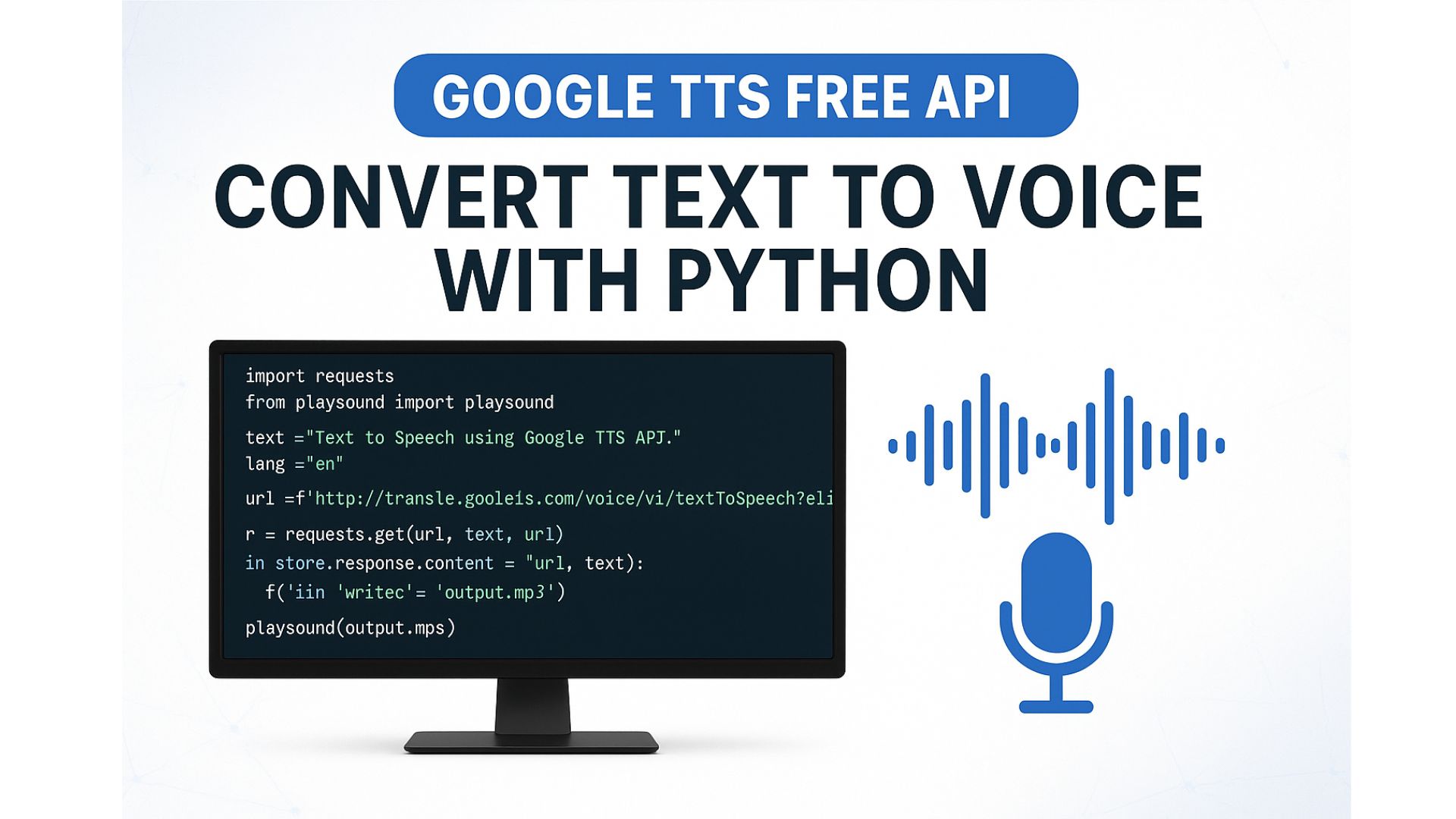Create Long-Form AI Voiceovers: Integrate ElevenLabs API for Text-to-Speech
2025-10-17 09:01 • 12 min read · 160 Views

1️⃣ Introduction
AI-powered Text-to-Speech (TTS) makes it easy to create natural voiceovers from text. ElevenLabs API provides high-quality voices, supports multiple languages, and can handle long text, making it perfect for videos or audiobooks lasting hours.
2️⃣ Python Environment Setup
Install the required libraries:
elevenlabs: to access the ElevenLabs TTS API.
pydub: for audio processing, merging, and exporting MP3 files.
3️⃣ Preparing the Text
- Save your content in a text file (
1.txt). - It can be thousands of words long.
- Split the text into manageable parts for TTS:
Your Config:
Split file to more sentense:
4️⃣ Convert Text to Speech with ElevenLabs API
Set up your ElevenLabs client and generate audio for each part:
from elevenlabs import ElevenLabs, save
import os
5️⃣ Merge Audio Parts
Use pydub to combine all parts into a single long MP3:
6️⃣ Notes & Tips
- Long Form Support: By splitting text into chunks, you can generate TTS for content lasting hours.
- Custom Voices: ElevenLabs supports multiple voices; change
VOICE_IDto try different ones. - Multilingual:
MODEL_ID="eleven_multilingual_v2"allows you to read text in various languages. - File Size: For very long content, consider generating in batches to avoid memory issues.
7️⃣ Conclusion
By following this method, you can automatically generate long audio content from text using ElevenLabs API. This is ideal for YouTube videos, audiobooks, podcasts, or any project requiring high-quality AI voiceovers.
COPY YOUR API KEY AND RUN IT ON GOOGLE COLAB
If you want to try Text-to-Speech for free, visit ttsforfree.com and start generating your own AI voice today!
Are You Misreading Your Google Analytics Numbers? The Hidden Truth Behind “Active Users”
Frequently Asked Questions
Q: Does ElevenLabs support long text?
A: Yes — when divided into smaller chunks.
Q: Can I use custom voices?
A: Yes — just change the VOICE_ID.
Q: Can I use this for YouTube monetized videos?
A: Yes, if you follow the licensing terms of ElevenLabs.
Was this article helpful?
Related Articles

Top 7 Công Cụ Text to Speech Tốt Nhất Cho Developer Năm 2025
Khám phá những công cụ TTS tốt nhất để thêm giọng nói vào ứng dụng hoặc website của bạn trong năm 2025.

How to Use Google Text-to-Speech API for Free (with Python)
Learn how to use Google Text-to-Speech (gTTS) API for free with Python. Step-by-step tutorial to convert any text into natural voice and combine audio files easily.